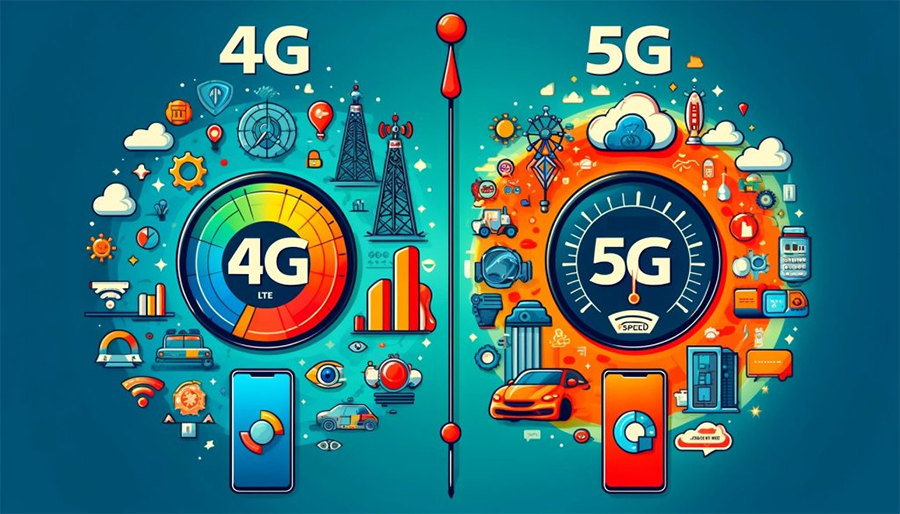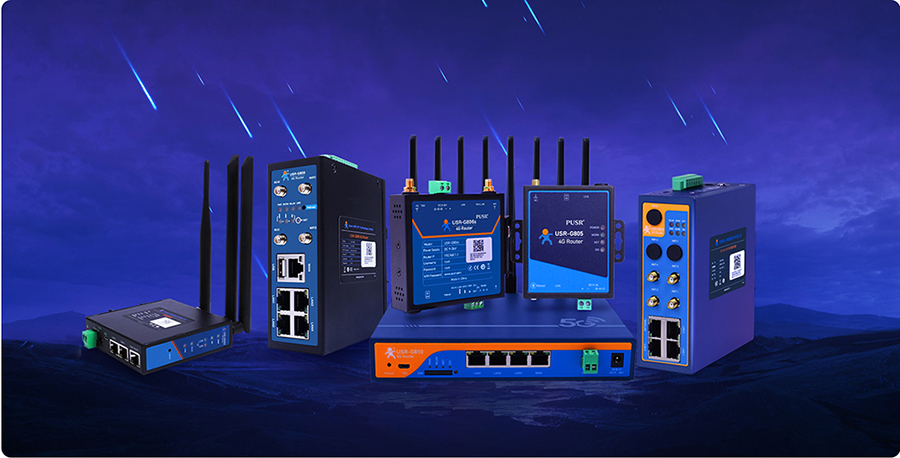As an expert in the field of Industrial Internet of Things (IIoT), I am often asked to compare and contrast different wireless communication technologies. One such comparison that frequently arises is between Long-Term Evolution (LTE) and 5G. The question often posed is: is LTE better than 5G? And why, despite the emergence of 5G for quite some time now, is LTE still so widely used?
It's important to clarify that LTE and 5G are not mutually exclusive technologies. Instead, they represent different generations of wireless communication standards, each with its own set of advantages and disadvantages. LTE, as a 4G technology, has been widely adopted and deployed globally, providing reliable and high-speed wireless connectivity for a range of applications. On the other hand, 5G, as the latest generation of mobile networks, promises even faster speeds, lower latency, and increased capacity.
Now, to address the question of whether LTE is better than 5G, it's crucial to understand that "better" is a subjective term that depends on the specific use case and requirements. LTE has proven to be a robust and reliable technology, capable of handling a significant amount of data traffic and providing good coverage in most areas. It has been widely adopted by both consumers and businesses, particularly in areas where 5G coverage is limited or unavailable.
LTE has a mature and established ecosystem of devices, infrastructure, and applications. This means that it's easier to integrate LTE into existing systems and deploy it in a variety of scenarios. Additionally, LTE networks have been thoroughly tested and optimized over the years, resulting in improved reliability and performance.
This does not mean that 5G is inferior to LTE. On the contrary, 5G offers significant advantages over LTE in terms of speed, latency, and capacity. It's particularly suitable for applications that require low-latency communication, such as real-time video streaming, autonomous vehicles, and remote surgery. Additionally, 5G enables the connection of a vast number of devices, making it ideal for IoT and IIoT applications where a large number of sensors and actuators need to be connected and monitored.

The reason why LTE is still widely used despite the emergence of 5G can be attributed to several factors. Firstly, the deployment of 5G networks is a complex and costly process that requires significant investments in infrastructure and spectrum. As a result, 5G coverage is still limited in many areas, particularly in rural and remote regions. Secondly, not all devices and applications require the high speeds and low latency offered by 5G. In many cases, LTE provides sufficient performance for the intended use.
The transition from one generation of wireless networks to the next is a gradual process that involves the replacement and upgrading of existing infrastructure. This takes time and requires careful planning and coordination. Therefore, it's not uncommon for older technologies like LTE to remain in use even after the introduction of newer ones like 5G.
The question of whether LTE is better than 5G is not straightforward. Both technologies have their own strengths and weaknesses, and the choice between them depends on the specific use case and requirements. LTE remains widely used due to its reliability, established ecosystem, and widespread coverage. However, as 5G networks continue to expand and mature, we can expect to see more applications and scenarios where 5G will be the preferred choice.

In the rapidly evolving landscape of industrial internet of things (IIoT), the choice of router—specifically, 5g cellular router vs. 4g cellular router—has become a critical decision for businesses. Both technologies offer distinct advantages, but understanding the nuances between them is essential for making an informed decision.
5g cellular router offer significantly higher data speeds compared to 4g cellular router. With 5G, businesses can expect low-latency, high-bandwidth connectivity, enabling real-time data transmission and faster response times. This is particularly beneficial for industries that require mission-critical applications or remote monitoring and control. On the other hand, 4g cellular router provide a stable and reliable connection for most industrial applications, but may not be suitable for high-bandwidth or low-latency use cases.
5G networks are still in the early stages of deployment, and coverage may be limited in certain areas. Therefore, businesses need to carefully assess the availability of 5G networks in their operational areas before making a decision. 4G networks, on the other hand, have a much wider coverage and are more widely available, making them a more reliable choice in areas where 5G coverage is limited.
5G routers are generally more expensive than 4g cellular router due to their advanced technology and higher performance capabilities. However, the cost should not be the sole determining factor. Businesses need to consider the long-term benefits of investing in 5G routers, such as increased efficiency, reduced downtime, and improved productivity. In contrast, 4g cellular router offer a cost-effective solution for basic industrial connectivity needs.
As 5G networks continue to expand and mature, they will enable new and innovative applications in the industrial space. By investing in 5G routers, businesses can future-proof their operations and prepare for the emergence of new technologies and use cases. While 4g cellular router may meet current needs, they may not be able to support future advancements in IIoT.
Both 5g cellular router and 4g cellular router come with robust security features to protect against cyber threats. However, it's important to ensure that the router chosen meets the specific security requirements of the industrial environment. Additionally, reliability is crucial for industrial applications, and both 5G and 4g cellular router offer high levels of uptime and stability.
Choosing between 5G and 4g cellular router requires a careful consideration of various factors, including performance, coverage, cost, future-proofing, and security. Businesses should assess their specific needs and requirements, as well as the availability and maturity of 5G networks in their operational areas, to make an informed decision. In the end, the choice should align with the overall goals and objectives of the IIoT deployment, ensuring optimal performance and reliability for industrial operations.